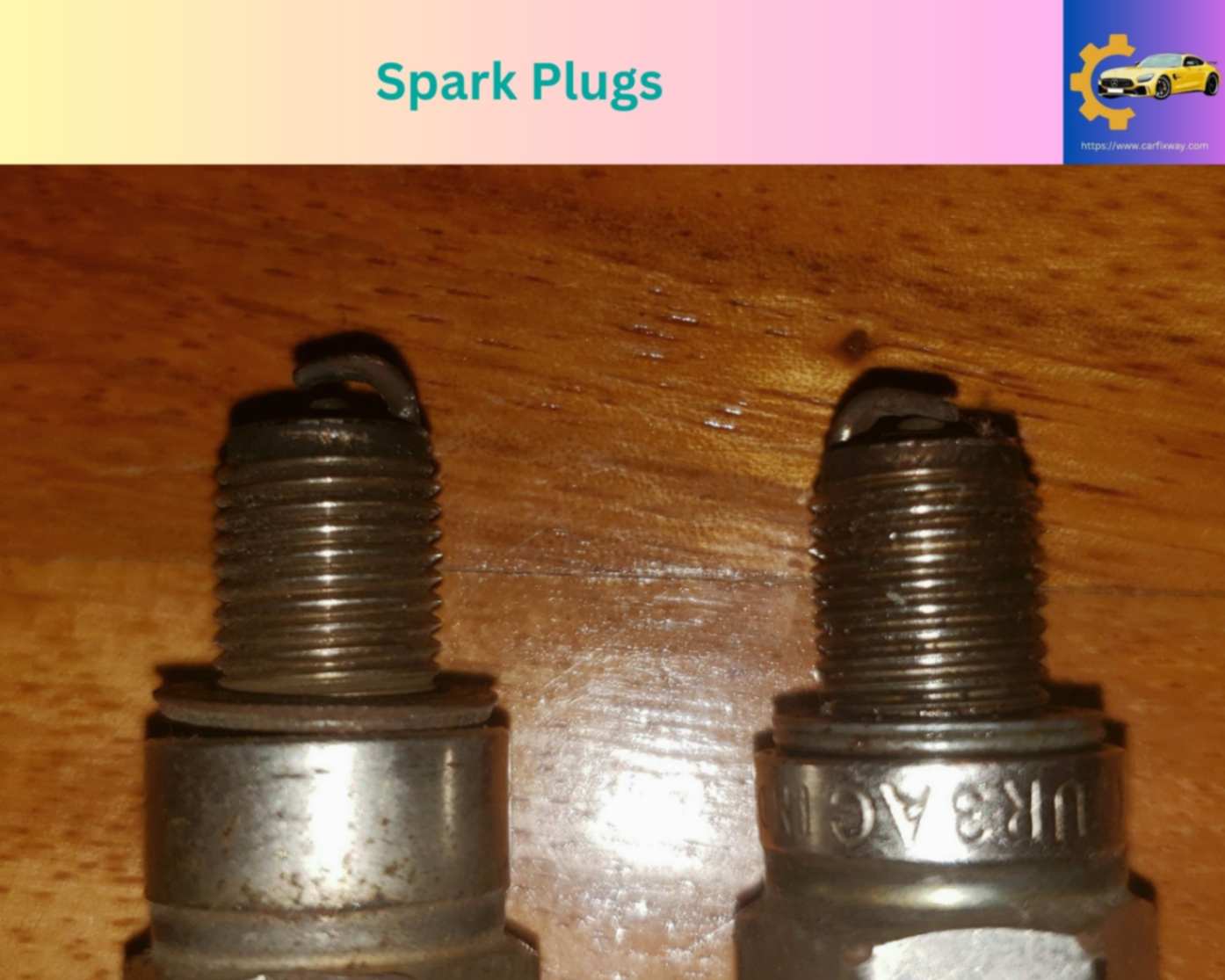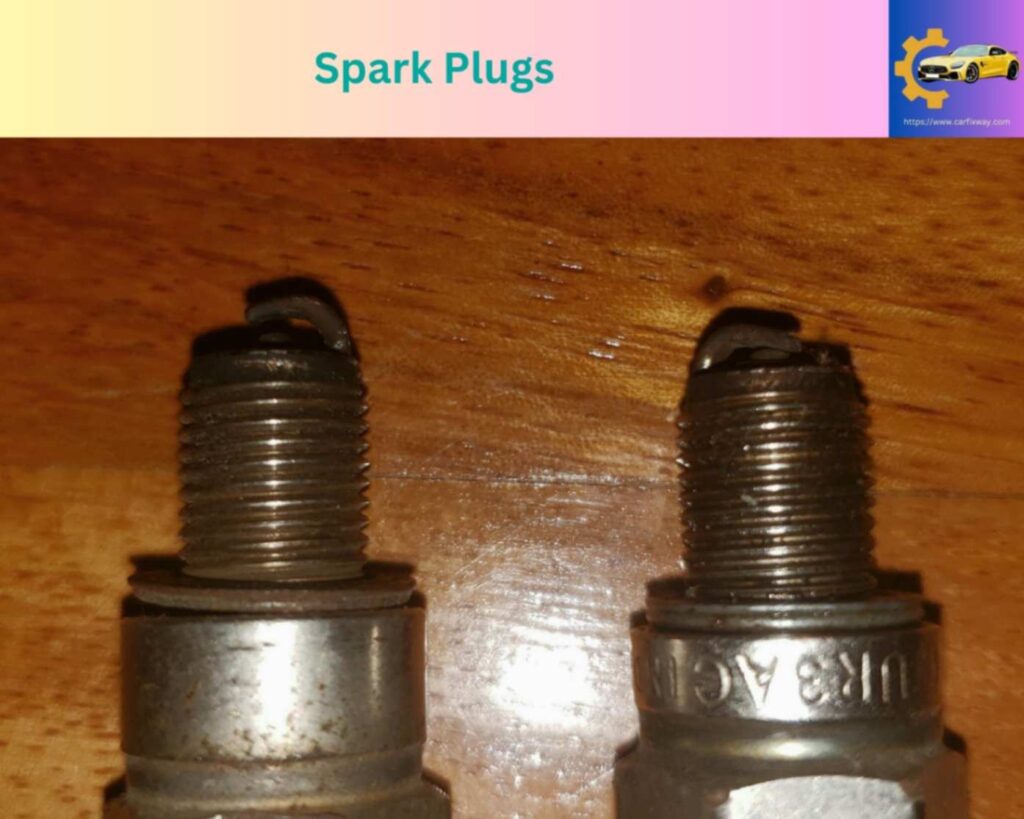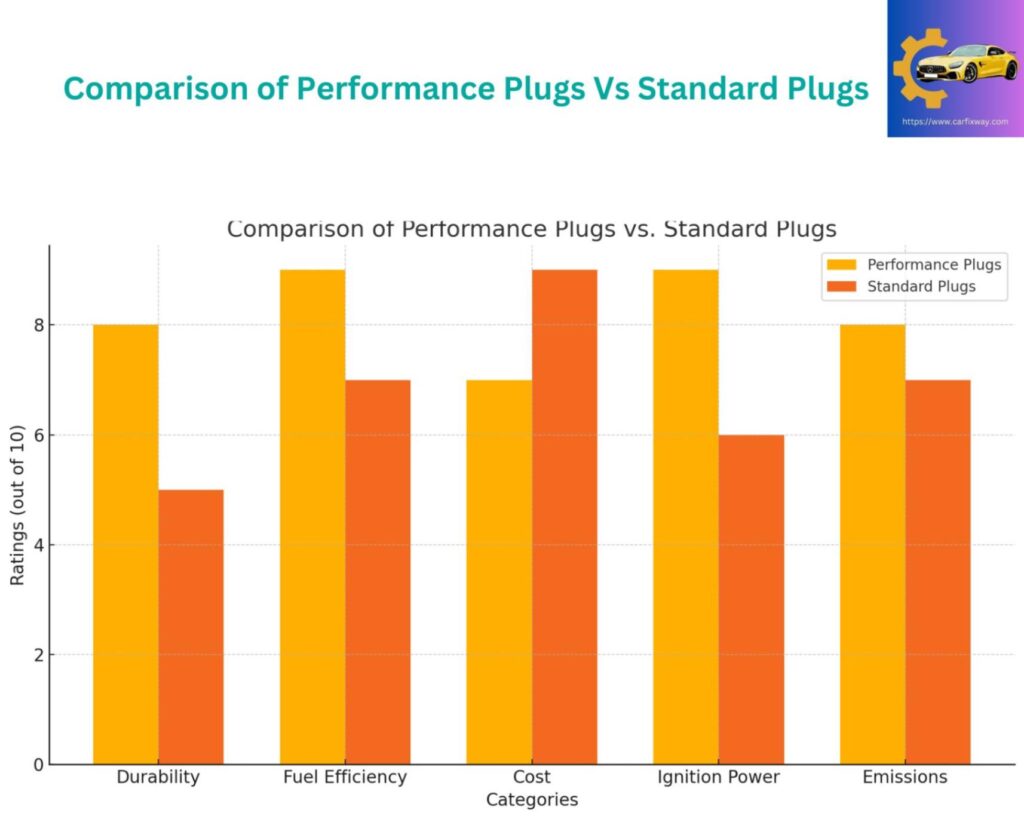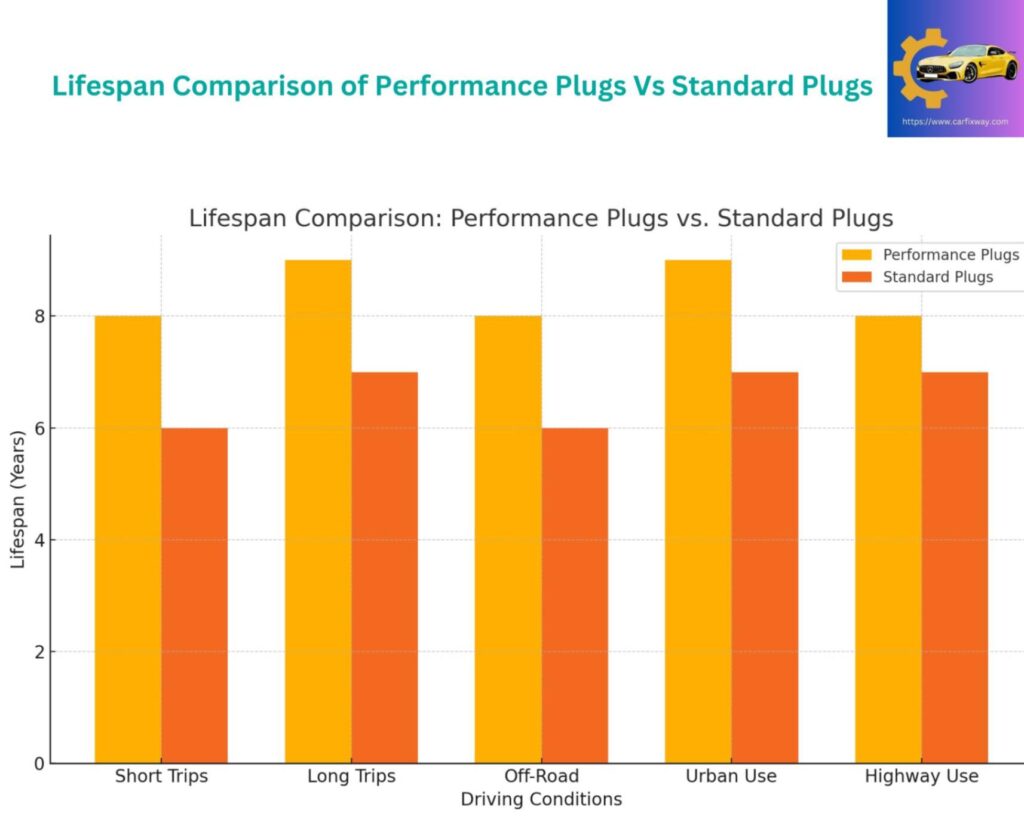Phone:
(701)814-6992
Physical address:
6296 Donnelly Plaza
Ratkeville, Bahamas.


Yes, spark plugs can cause engine knock, and understanding why is crucial for anyone who wants to maintain their vehicle. Engine knock occurs when the fuel in the cylinder ignites irregularly, leading to that unsettling knocking sound. Spark plugs, if faulty or misfiring, are one of the main contributors to this issue.
Engine knock can result from various factors like poor fuel quality, carbon deposits, or faulty components. However, spark plugs are essential for smooth combustion, and when they fail, the combustion process is disturbed, directly affecting engine performance.
In this article, we will explore how faulty spark plugs can lead to engine knock, discuss the warning signs, and offer solutions to fix this problem. You’ll leave with a comprehensive understanding of how to prevent engine knock and ensure optimal engine performance.
Spark plugs are essential for starting your engine by creating a powerful spark that ignites the air-fuel mixture. This ignition causes combustion, which powers your car’s pistons and gets your vehicle moving. Each spark plug creates a tiny electrical arc across a gap between two leads, which ignites the fuel in the engine’s cylinders.
Moreover, the spark plugs work in harmony with the ignition system, ensuring proper timing and energy supply to keep your engine running smoothly.
A well-functioning spark plug is vital for maximizing your engine’s performance. It ignites the fuel-air mixture, ensuring efficient combustion, which boosts fuel economy and power. When the spark is strong and timed perfectly, it helps reduce engine wear and fuel waste. This means smoother acceleration and a more reliable engine overall.
If spark plugs misfire, they can cause an engine knock. This happens when the ignition timing is too advanced, causing the fuel-air mixture to ignite prematurely. When this occurs, the engine may produce knocking sounds and experience reduced performance.
Repeated overheating is a major cause of spark plug failure. When the spark plug tip overheats, it can lead to pre-ignition, causing the combustion chamber to overheat. This chain reaction results in quicker wear and engine misfires. A malfunctioning cooling system can also contribute to this issue.
Ensuring the quality and proper maintenance of spark plugs is crucial for optimal engine performance. Worn or faulty spark plugs can lead to engine misfires, reduced fuel efficiency, and increased emissions. Regular inspection and timely replacement of spark plugs will not only improve your car’s performance but also extend the life of your engine.
Spark plugs play an essential role in the ignition and combustion process by creating the electrical spark needed to ignite the air-fuel mixture within the engine’s cylinders. A well-maintained spark plug ensures a precise and reliable spark, crucial for smooth engine operation. Ensures timely
When spark plugs wear out, they no longer provide a strong enough spark to ignite the air-fuel mixture properly. This leads to issues like the engine stalling, especially during cold starts. The weakened spark results in incomplete combustion, making the engine struggle to start and reducing overall efficiency. Additionally, failing spark plugs can drain your battery faster, adding extra strain to the ignition system.
Signs of faulty spark plugs: Misfires, rough idling, and hard starts.
As spark plugs age, carbon deposits build up on them, leading to inefficient combustion. This not only causes the engine to lose power but also results in poor fuel economy. Replacing worn spark plugs helps maintain optimal combustion, ensuring the engine operates smoothly and saves fuel.
Effects of dirty plugs: Reduced engine power, increased fuel consumption, and engine surging
Spark plugs are crucial to your engine’s performance, as they convert electrical energy into a spark that ignites the air-fuel mixture. If the spark plugs are worn, damaged, or misfiring, they can lead to incomplete combustion, which can cause engine knock. This knocking occurs when the air-fuel mixture ignites prematurely, potentially damaging your engine over time.
Preventative Steps:
Several spark plug-related issues can result in engine knocking:
Improper spark plug gaps can seriously harm engine performance. If the gap is too close, it results in a weak spark; if too broad, it could cause misfiring.
A misaligned gap creates pre-ignition, often due to heat transfer issues, over-advanced ignition timing, or using incorrect plugs. This can lead to engine knocking and serious damage.
Misfiring and How It Relates to Engine Knock
Misfiring occurs when the timing or air-fuel mix is off, leading to an engine knock.
Misfiring can damage engine cylinders and worsen knocking. It can also stem from worn-out spark plugs, making the engine run rough.
When spark plugs wear out, they can cause engine knock, which is often a sign of trouble. You’ll first notice a distinct knocking sound, especially during acceleration. The engine may also struggle to start, idle roughly, or feel sluggish when accelerating.
Look out for these symptoms:
Ignoring these signs can lead to more severe engine damage if unresolved.
To diagnose an engine knock caused by spark plugs, start with a simple OBD-II scan. This will reveal if there are any misfire codes or issues related to engine timing. Visual inspection of spark plugs is also essential to check for wear, carbon build-up, or incorrect gaps. Here are the steps to follow:
Engine knock can lead to severe damage over time if ignored. It starts by causing wear on critical components like pistons, spark plugs, and valves. If left unresolved, the knocking sound can result in long-term engine wear, eventually leading to total engine failure. Here’s what to watch for:
Solutions:
To check if your spark plugs are causing the engine to knock, you can follow these steps:
For diagnosing engine knock caused by spark plugs, testing the ignition timing, inspecting carbon buildup, and checking for proper spark plug gaps are essential. This ensures that your engine runs smoothly and avoids long-term damage from improper combustion
To fix spark plugs and eliminate engine knocking, you can take several effective steps. Begin by inspecting your spark plugs for wear or carbon buildup. Worn or damaged spark plugs can cause premature ignition, leading to knocking. If they appear damaged, replace them with the correct type, ensuring they are properly gapped. A misaligned spark plug gap can contribute to engine knocking, as it disrupts the air-fuel ignition timing.
Here’s a simple approach to address spark plug-related engine knocking:
It’s essential to follow the recommended spark plug replacement intervals for optimal engine performance. Generally, copper plugs should be replaced every 20,000 to 30,000 miles, while platinum and iridium plugs can last between 60,000 to 100,000 miles. If your vehicle operates under severe conditions such as extreme temperatures or frequent stop-and-go traffic, more frequent replacements may be necessary. Always consult your vehicle’s manual for the most accurate recommendations.
Regular tune-ups are crucial for improving fuel efficiency and maintaining engine performance. During a tune-up, components like spark plugs, air filters, and fuel injectors are inspected and replaced if necessary. This not only enhances engine responsiveness but also reduces harmful emissions and prolongs engine life.
To prevent engine knock, selecting the correct spark plug is vital. The heat range of a spark plug determines how well it can dissipate heat from the combustion chamber. Using a plug with the correct heat range for your engine helps avoid overheating, pre-ignition, and engine knock. Always refer to your car’s manual to ensure you’re using the appropriate type of spark plug for your vehicle.
By maintaining and replacing spark plugs as needed, you ensure smoother engine operation, improved fuel efficiency, and reduced chances of engine damage.
Addressing spark plug-related engine knock is essential for smooth performance.
Using a spark plug gap tool, gently adjust the gap by bending the ground electrode slightly. Ensure the gap matches your vehicle’s manufacturer’s recommendations for optimal performance and to prevent engine knock.
Selecting the right spark plug heat range is critical. A spark plug that’s too hot can cause pre-ignition, while a cold one may foul, leading to misfires. Always refer to your vehicle’s manual for the appropriate plug type to prevent engine damage from knocking.
By maintaining spark plug health, you ensure your engine runs smoothly, avoiding the common pitfalls of engine knock.
Hearing a knocking sound in your engine? This could be caused by spark plug issues.
Ignoring it can lead to bigger engine problems, costing you more in repairs. Consult a mechanic immediately if you hear knocking. They can determine if it’s just a faulty spark plug or something more serious.
Engine knocking? Ignoring this noise can lead to severe consequences.
Knocking could indicate the wrong fuel or a lean air-fuel mixture, which may damage your engine if left unchecked.
Act fast. A professional inspection can prevent expensive repairs down the road.
Can a Knocking Engine Be Repaired?
Worried that engine knocking means the end of your engine?
While a knocking engine may seem like a severe problem, it’s often fixable. Have it checked early by a professional to avoid extensive damage?
Preventive maintenance of spark plugs is crucial to keeping your engine running efficiently and avoiding issues like engine knock. The key to maintaining your spark plugs is regular inspection and cleaning. Here’s a simple plan to ensure optimal performance:
Regular maintenance can prevent major engine issues, including engine knocks.
Preventive Maintenance Steps:
Maintaining spark plugs is simple but highly effective in preventing engine problems, including engine knocks. By sticking to this routine, you’ll keep your car running smoothly
Using the right spark plug and heat range is crucial for optimal engine performance. A fouled spark plug can cause engine misfires and stalling, leading to a rough drive. On the other hand, using a spark plug with a heat range that is too high can result in overheating. This overheating wears down the electrodes faster, causing pre-ignition, reducing fuel efficiency, and potentially damaging the engine.

When choosing between performance and standard spark plugs, it’s essential to understand your vehicle’s needs. Performance plugs are ideal for high-performance engines, delivering better ignition and durability. However, standard plugs work well for everyday driving, providing reliable ignition at a more affordable price.

Key Points:
These recommendations ensure your engine runs smoothly while preventing potential issues like overheating and pre-ignition, improving both performance and longevity.
To wrap up, spark plugs play a crucial role in engine performance. Faulty or worn-out spark plugs can lead to engine knock, which may harm engine health if not addressed quickly. To keep your engine running smoothly, regular spark plug maintenance is essential. This prevents engine knock and ensures proper combustion. Remember, addressing spark plug issues promptly can save you from costly repairs and keep your engine performing at its best.
Yes, bad or worn-out spark plugs can cause engine knock. When they fail to ignite the fuel-air mixture properly, it can lead to knocking sounds in the engine.
Faulty spark plugs may create incorrect ignition timing, which leads to detonation or pre-ignition, causing the engine to knock. This happens when the fuel ignites too early or too late.
Common symptoms include knocking or pinging noises during acceleration, reduced engine performance, and misfires. You may also notice decreased fuel efficiency.
Yes, using the wrong type of spark plug with improper heat ratings can cause the engine to knock. It’s important to use the manufacturer-recommended spark plugs.
Replacing the worn-out or incorrect spark plugs with the right ones can resolve engine knock. Regular tune-ups help prevent this issue.
Yes, persistent engine knocks can damage the engine over time. It’s important to address the issue promptly to avoid costly repairs.
Generally, spark plugs typically need replacement every 30,000–100,000 miles. It depends on the manufacturer’s recommendation and its physical condition. Regular maintenance can help avoid engine-knocking issues.
Yes, if the gap between the spark plug’s electrodes is too wide or too narrow, it can lead to inefficient combustion, causing knock. Adjusting the gap can help fix the issue.
Ignoring engine knock can lead to severe damage, including piston and cylinder wear, which could result in costly repairs.
Cleaning carbon buildup on the spark plugs can help reduce knocking, but if the plugs are too worn or damaged, replacement is the best solution.